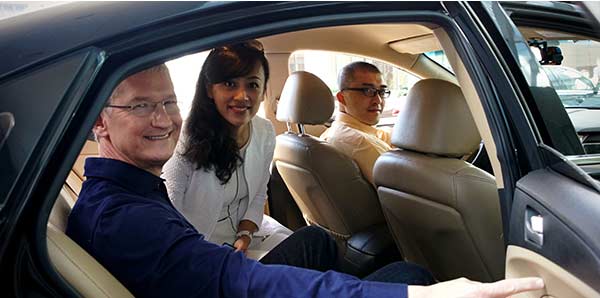Two wheels are better than four

Unified standards
The nature of the shared bike service in China is without doubt why it has become massively popular. Users can easily unlock a bike using their phones and trips cost as low as 0.50 yuan. Also, the services are considerably more convenient than those seen in Europe because there is no need to return the bike to a specific kiosk owned by the operator - users just need to find a parking lot. Such spaces are widely available across Chinese cities.
The flexible nature of this service, however, has its pitfalls. Inconsiderate users have left the bikes in public areas that impede human traffic. Others vandalize the bikes. A number of them have even brought these bikes home.
On May 22, the Ministry of Transport said that the government, enterprises, organizations and the public have a part to play in promoting the development of the industry. Authorities are now in the midst of drafting regulations for the bike-sharing market.
Zhu Dajian, a professor from Tongji University who is helping the local bicycle association review the maiden standards for shared bikes, said that the first draft of the regulations for Shanghai and Tianjin will be released in mid-June. He also revealed that the measures include introducing an operator-to-bike ratio, setting bike durability standards and a retirement date for the bicycles.
"Bike-sharing is an unprecedented business model so we need to work to ensure its healthy development, seeing how it has brought great benefits to urban transportation," said Zhu.
Yu, who has been involved in the drafting of the standards, added that those aged below 12 will not be allowed to use shared bikes, and that all bicycles must be installed with GPS devices.
According to Mobike, it is currently the only operator in the country that uses Beidou navigation satellite system and GPS to track all of its bicycles.
"Safety standards, combined with better industrial design, will boost the durability of our products. Mobike will cooperate with the government to help promote the healthy development of the shared bike industry," said Yao.
"From the perspective of operators, it is time to use new technology to prevent the misuse of shared bikes and create an orderly development atmosphere," added Zhang from Xiaoming Bike, who expects an independent government department to be placed in charge of the sector.
Besides GPS technology and stricter standards, another policing element in the shared bike industry is the users.
Groups of "hunters" have emerged in recent months and they take it upon themselves to rein in the black sheep in the shared bike community. Zhuang Ji is one such individual. Every day, he travels around the city to remove fake QR code stickers and unauthorized advertisements on shared bicycles as well as report offenses such as improper parking, traffic violations and malicious damage to the bikes.
Zhuang, who is a curatorial assistant at the Power Station of Art, is not the only person who has this peculiar hobby - there are around 3,500 people from 33 cities in a "hunter's group" that he leads.
"Every day, I put more than 500 disorderly parked shared bikes outside of my workplace back in order. I do that on my own accord because I think the shared bike is a great invention of China and we should do our part to allow it to benefit more people," said Zhuang.
wang_ying@chinadaily.com.cn
















